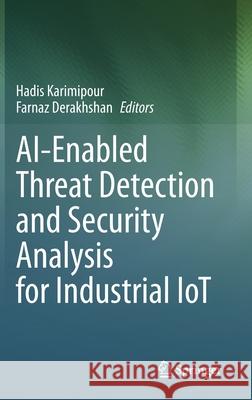Ai-Enabled Threat Detection and Security Analysis for Industrial Iot » książka
topmenu
Ai-Enabled Threat Detection and Security Analysis for Industrial Iot
ISBN-13: 9783030766122 / Angielski / Twarda / 2021 / 250 str.
Kategorie:
Kategorie BISAC:
Wydawca:
Springer
Język:
Angielski
ISBN-13:
9783030766122
Rok wydania:
2021
Wydanie:
2021
Ilość stron:
250
Waga:
0.54 kg
Wymiary:
23.39 x 15.6 x 1.6
Oprawa:
Twarda
Wolumenów:
01
Dodatkowe informacje:
Wydanie ilustrowane











